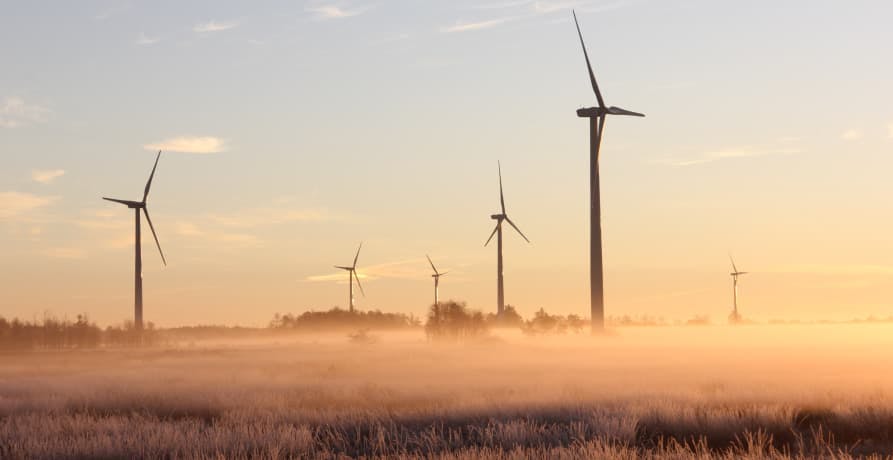
Impacts, Risks, and Opportunities (IRO) for CSRD Reporting
In this article, we’ll break down what IROs are, how to identify and assess them, and what CSRD requires in terms of disclosure.
ESG / CSR
Industries



The urgency of the climate crisis has sparked global discussions on the future of economic models and their implications for the environment. Traditional, growth-centric models are now being critically examined against the backdrop of their sustainability, and alternative models are being explored. One such economic model is the theory of economic degrowth, which proposes limiting the development of economies in an effort to create a more sustainable way of living.
👉 In this article, we'll dive into the concept of degrowth, its pros and cons, and contrast it with the alternative: green growth.
Originating from the 1970s, degrowth is a radical economic theory conceptualised by Andre Gorz, an Austrian-French social philosopher. Rather than championing economic expansion, degrowth emphasises the deliberate contraction of economies. This shift is aimed at fostering sustainability by reducing our consumption of the world's resources and energy.
The prominence of degrowth theory surged in the early 2000s, with a rising number of economists challenging the prevailing model of ceaseless economic growth, deeming it unsustainable.
Crucially, degrowth doesn't suggest sacrificing societal needs. On the contrary, it champions an economic model that meets everyone's fundamental necessities, all while honouring our planet's ecological limits. Instead of a relentless quest for corporate profit and expansion, the theory underscores the importance of collective well-being and a thriving ecosystem.
Economic growth dates back to the dawn of the Industrial Revolution. As we switched from an agrarian to a manufacturing-based economy, the world began to see increased prosperity, improved living standards, and widespread economic growth. However, this came at a cost: energy was needed to fuel the technological innovations that were driving this growth, and unfortunately, this energy came from the burning of fossil fuels. Fossil fuels emit vast quantities of carbon dioxide, upsetting the natural carbon cycle and driving human-induced climate change.
Climate change is now considered to be the defining challenge of the century. We’re increasingly feeling the harmful effects of a warming planet - with more frequent and intense weather events such as flooding, wildfires, heatwaves, and wider changes to weather patterns. If we’re to have any hope of avoiding the worst impacts, we need to limit the global temperature rise to 2 degrees Celsius - and ideally under 1.5 degrees Celsius. This is where degrowth comes in.
It's important to highlight that the first countries to experience this economic growth were the UK, European nations, and the US, often grouped as the Global West. Other countries around the world would eventually benefit from the same economic growth (or are considered to be in the midst of economic growth), however, this has led to the argument that the Global West is responsible for more than their fair share of emissions and that developing countries should also be allowed to benefit from the same economic growth and development.
👉 To learn more about climate change and its harmful effects, head over to our article on the topic.
Let’s take a closer look at the principles of degrowth:
Achieving degrowth requires a comprehensive and multidimensional approach, as it touches upon various aspects of our economic, social, and political structures. One of the first and foremost steps is a paradigm shift in how we perceive development and success. Instead of equating progress with endless economic growth, societies must acknowledge the finite limits of our planet and prioritise well-being, ecological stability, and long-term sustainability. Policy goals should transition from GDP (Gross Domestic Product) growth targets to alternative measures, such as the Genuine Progress Indicator (GPI) or Gross National Happiness (GNH), which encapsulate broader social, environmental, and economic health dimensions.
💡 The Genuine Progress Indicator (GPI) is a metric that is designed to provide a more rounded overview of the well-being of a nation, by incorporating environmental and social factors that are not measured under GDP. Gross National Happiness (GNH) is an index that is used to measure the collective happiness and well-being of a population - like GPI GNH also incorporates environmental and social factors.
At the economic level, transitioning to a circular economy is paramount. This means redesigning our production and consumption models to minimise waste and keep resources in use for as long as possible. Production should prioritise durability over obsolescence, and industries should be incentivised to produce goods that can be easily repaired, recycled, or repurposed.
On the consumption side, public campaigns can promote values of minimalism, sharing, and mindful purchasing. Localising production, reducing reliance on imports, and emphasising regional supply chains can further reduce the ecological footprint and fortify local economies. Public transportation, renewable energy, and sustainable agriculture should receive significant investments to make them widely accessible and efficient.
Simultaneously, fostering cultural change is crucial. This involves promoting values of cooperation, community, and simplicity in both education and media. The importance of leisure, mental health, and strong interpersonal relationships should be highlighted over consumerism and material acquisition. Social policies can also play a role, with governments encouraging community-driven projects, and facilitating platforms for skill-sharing and cooperative ventures. Ultimately, degrowth isn't merely a set of policies but a holistic vision for a sustainable and fulfilling future.
The concept of degrowth has been a topic of intense debate among economists, policymakers, and environmentalists, with many claiming that the theory is unlikely to work in reality.
One of the main concerns levied by critics is that degrowth, which involves intentionally limiting the growth economy, could lead to recession-like conditions, including job losses and financial hardships for many individuals and businesses. Traditional economic models often associate growth with improvements in living standards, technological progress, and better public services. Without continuous economic growth, these critics worry that investments in infrastructure, healthcare, education, and other vital services could dwindle. This could potentially exacerbate poverty and decrease overall societal well-being.
Another major criticism of degrowth is the perceived difficulty in transitioning from a growth-oriented model to a degrowth one, especially given the current global economic system that prioritises competition and expansion. There are concerns about how societies would adapt, particularly in sectors heavily reliant on growth.
Many believe that instead of abandoning growth entirely, a more practical approach might be to pursue "sustainable growth" or "green growth", which aims to achieve economic growth while also minimising environmental damage and resource depletion.

Critics of the degrowth theory advocate for the concept of green growth as a more pragmatic approach. Simply put, green growth emphasises separating economic expansion from its detrimental environmental consequences.
The essence of green growth lies in the belief that technological advancements and the substitution of environmentally harmful resources with sustainable alternatives can mitigate the adverse effects, such as greenhouse gas emissions, pollution, and resource depletion, typically associated with economic growth.
Encouragingly, green growth isn't a mere theoretical construct. Numerous economies, including the UK, France, Sweden, Finland, Denmark, Italy, Czechia, and Romania, have exemplified this successful 'decoupling.'
But what catalysed this green shift in these nations? One key factor is that while their GDPs have climbed, their total energy consumption remained stable, partly due to stabilised population growth. Furthermore, a substantial shift towards renewable or low-carbon energy sources means they can generate more energy without the associated carbon emissions.
A primary critique against green growth is the challenges it poses for developing nations. Affluent countries possess the financial muscle to build the necessary renewable energy infrastructure and support eco-friendly innovation. In contrast, many developing nations, constrained by limited resources, prioritise economic development as a route to elevate living standards and enhance health and education. For them, green growth often takes a back seat.
Finally, a paramount concern regarding green growth is the pace of decarbonisation. Even as the cost of low-carbon technologies drops, their widespread adoption isn't instantaneous - it's a journey, not a sprint.
👉 Why not take a look at our article exploring the compatibility of economic growth and emission curbs to learn more about the green growth model.
The current climate crisis has prompted global introspection regarding the sustainability of ceaseless economic growth, leading to the emergence of new economic theories such as degrowth and green growth.
Degrowth argues for a deliberate economic contraction, emphasising the need to reduce our resource consumption and champion collective well-being over corporate expansion. It offers a paradigm shift in how we measure success, advocating for alternative indices like the Genuine Progress Indicator or Gross National Happiness, which incorporate broader dimensions of societal well-being.
On the flip side, critics worry that an intentional slowdown could lead to economic hardships and reduced investments in vital public services. Instead, they propose the concept of green growth, which seeks to decouple economic expansion from environmental degradation through technology and sustainable resource substitution. However, the feasibility of green growth is contested, particularly concerning its applicability to developing nations.
What's certain however is that both theories are a testament to the growing consensus that our current trajectory is unsustainable.
At Greenly we can help you to assess your company’s carbon footprint, and then give you the tools you need to cut down on emissions. Why not request a free demo with one of our experts - no obligation or commitment required.
If reading this article has inspired you to consider your company’s own carbon footprint, Greenly can help. Learn more about Greenly’s carbon management platform here.